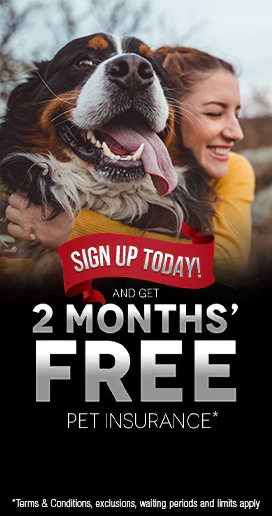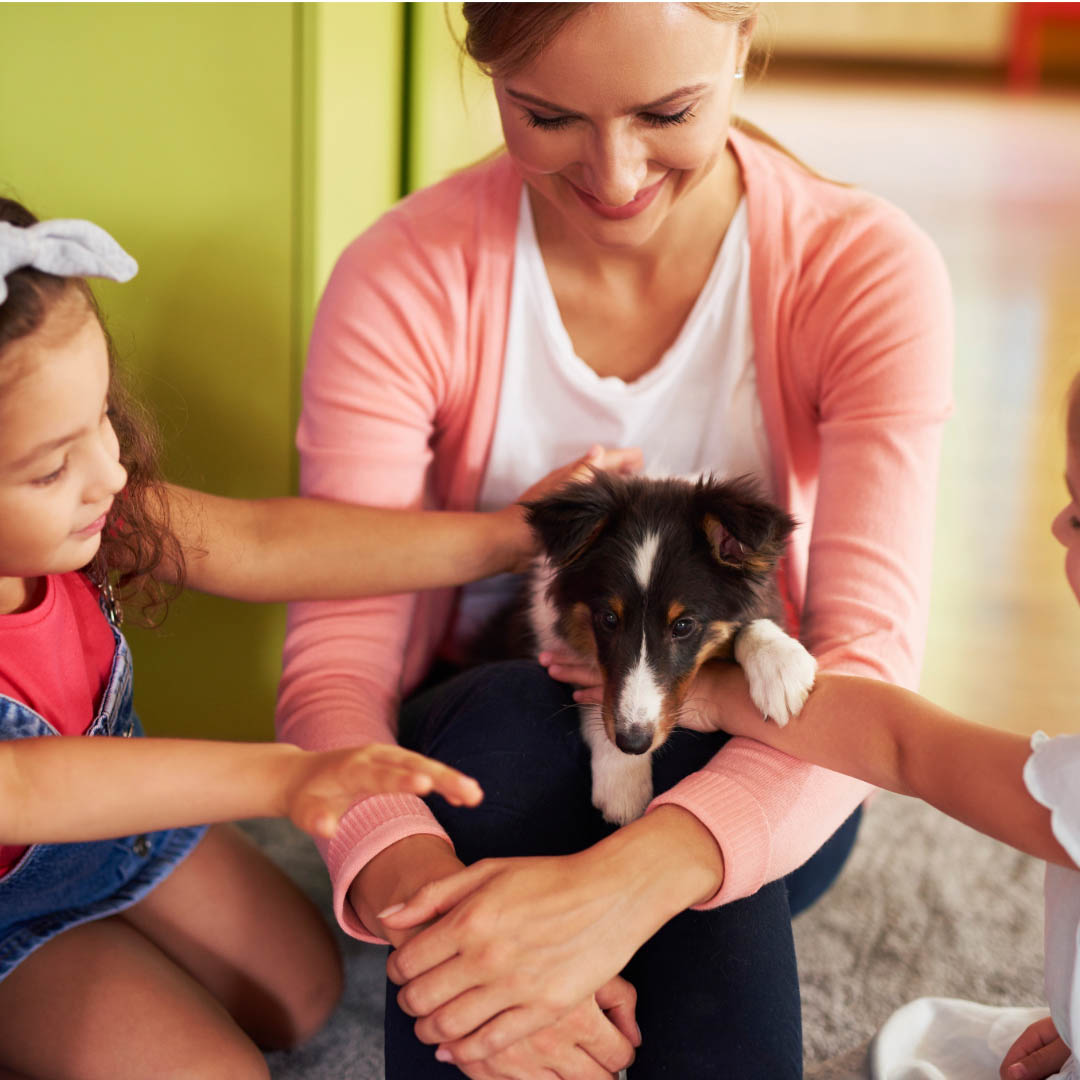
The Importance of Early Puppy Socialisation: Building Confidence from the Start
Bringing a new puppy into your life is an exciting journey filled with cuddles, playtime, and countless memorable moments. However, amidst the joy, it’s crucial to prioritise one of the most significant aspects of your puppy’s development: early socialisation. Many new puppy owners can get a little confused due to the possible dangers socialising can bring before your puppy is 100% vaccinated. However, the great news is that you can safely start early socialisation, allowing your pup to explore the world without the risk of contracting an illness.
Understanding the Critical Socialisation Period
Puppies experience a critical socialisation period between 3 and 14 weeks of age, during which their experiences profoundly shape their future behaviour and temperament. Since most owners bring their puppies home around 8 weeks of age, this remaining window is critical for development.
Exposing puppies to various stimuli—people, animals, environments, sounds—during this window helps them become well-adjusted, confident adult dogs. Socialisation during this time should be considered ‘observation’ – the art of watching the world and experiencing it without needing to interact with what is going on around.
What Should I Expose My Puppy to for Socialisation?
Everyday Experiences & Environments
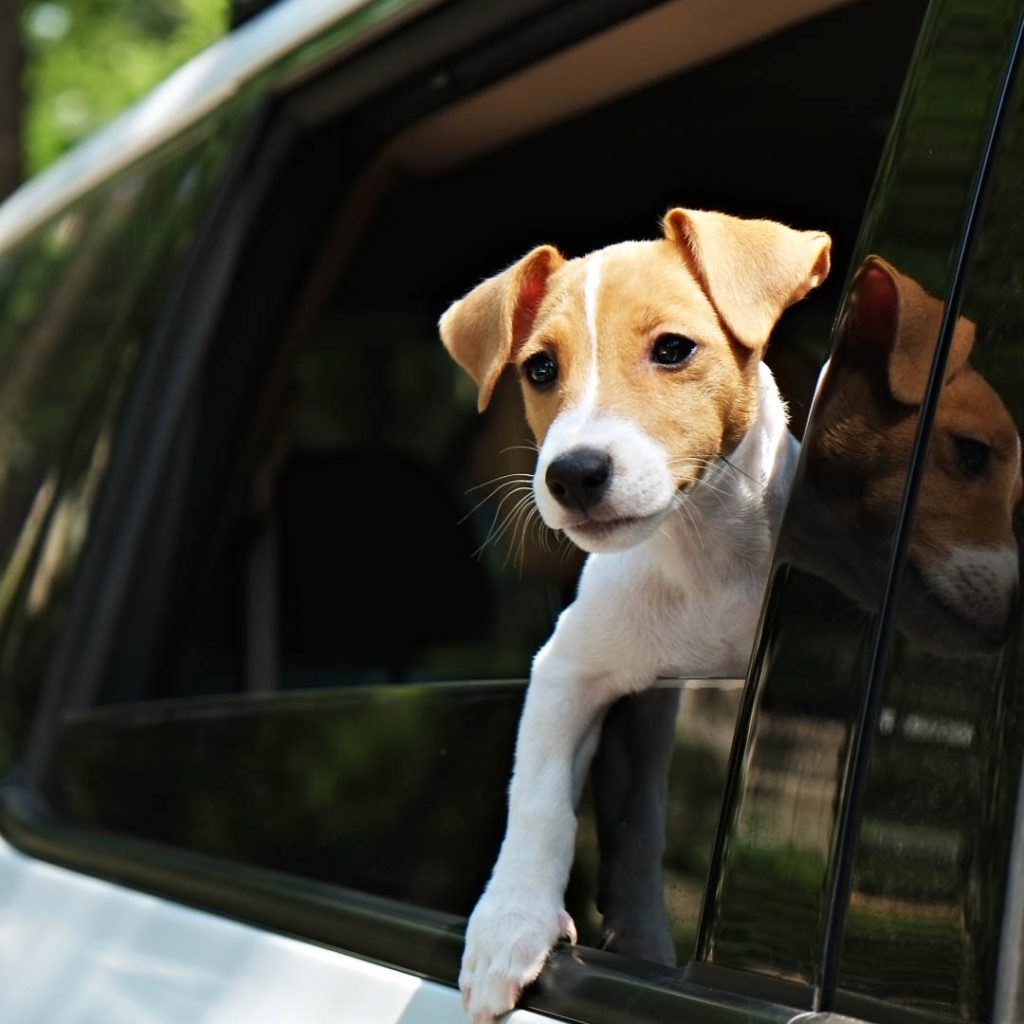
- Car rides – short and calm trips with plenty of praise
- Traffic sounds – busy roads, sirens, trucks, buses (from a safe distance)
- Different surfaces – tiles, gravel, grass, sand, metal grates, wooden decks
- Public places – parks, outdoor cafés, pet stores (in arms or safely managed)
- Stairs and ramps – indoors and outdoors, different materials.
People & Social Interaction
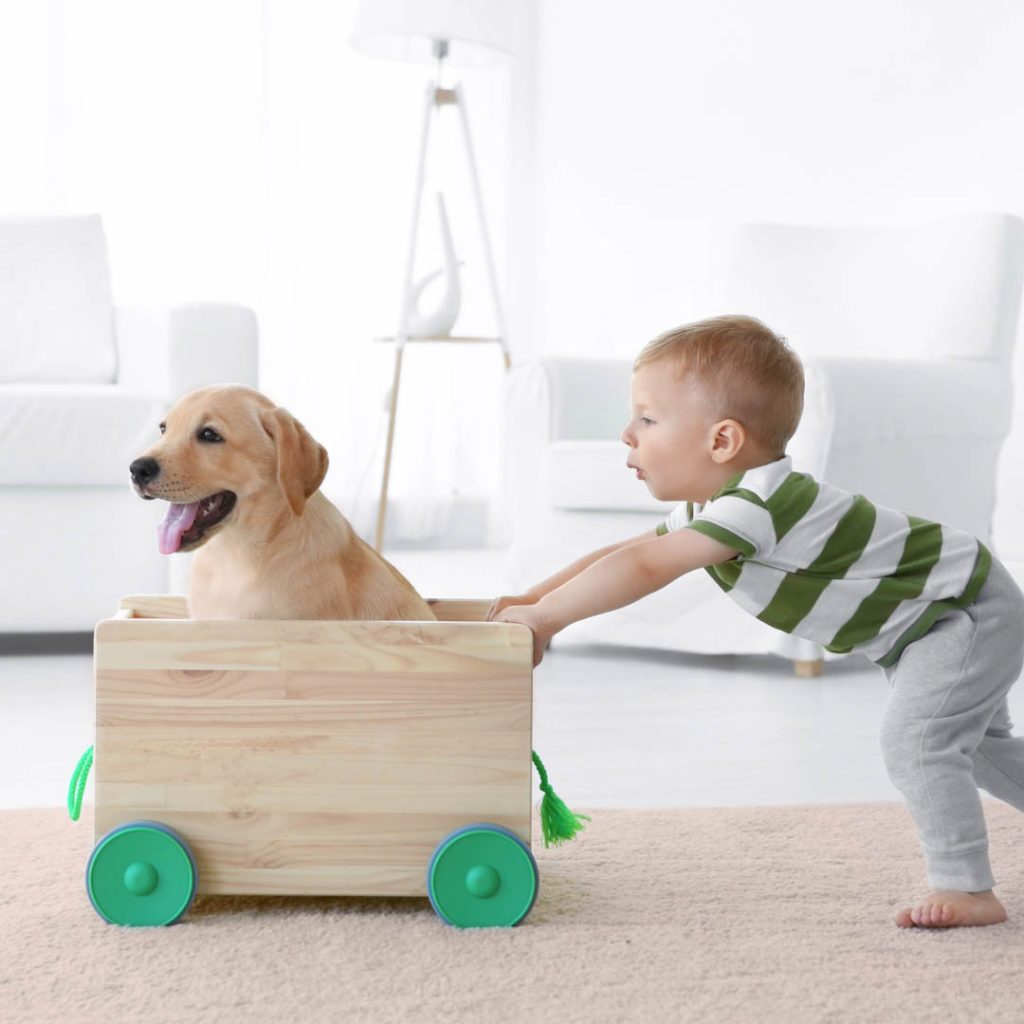
- Children – supervised interaction with gentle, calm kids of varying ages
- People with hats, helmets, sunglasses – different looks and outfits
- People using mobility aids – walkers, canes, wheelchairs
- Delivery people/posties – strangers arriving and leaving
- Groups of people – gatherings, markets, light foot traffic
Animal Encounters
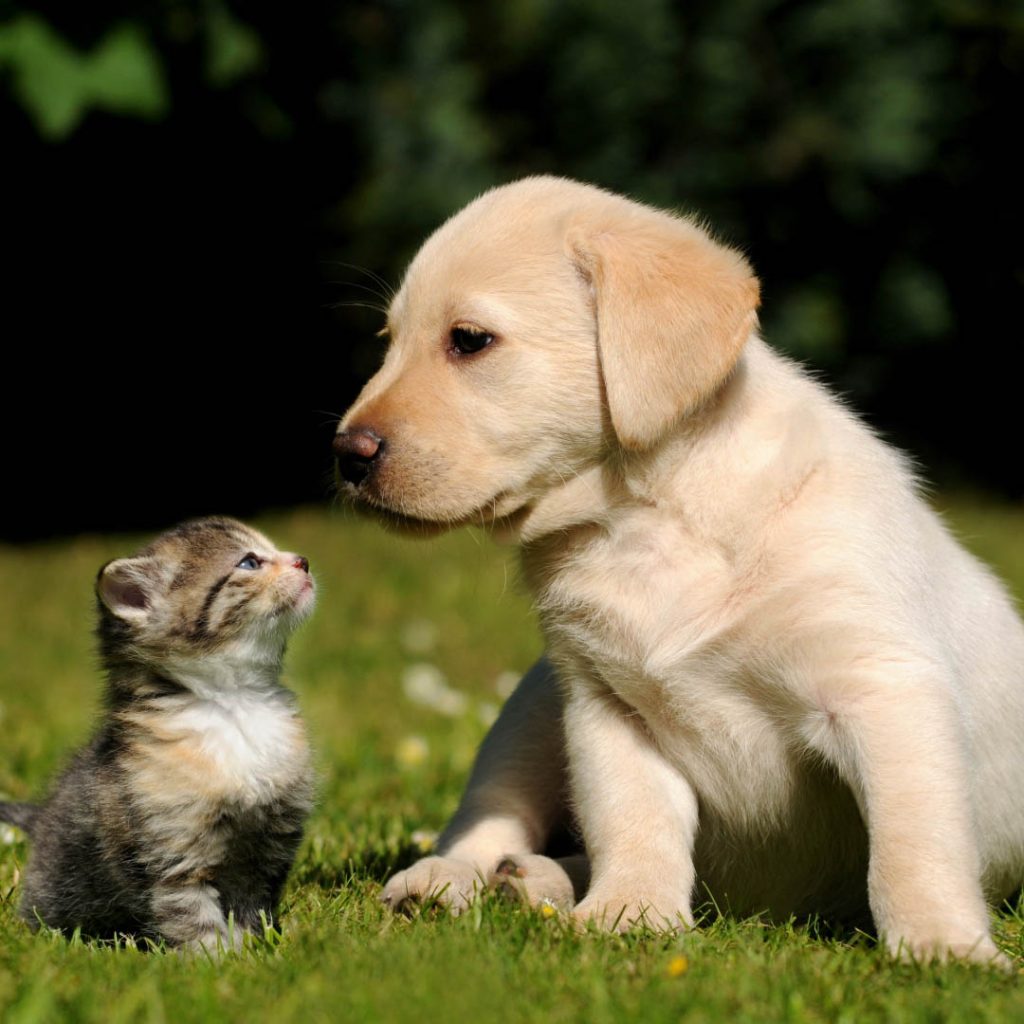
- Friendly, vaccinated dogs – size, breed, energy level variety
- Cats – if safe and calm interaction is possible
- Farm animals or birds – at a safe distance (chickens, horses, cows)
- Wildlife exposure – like birds or ducks, from afar and on leash
Sounds & Stimuli
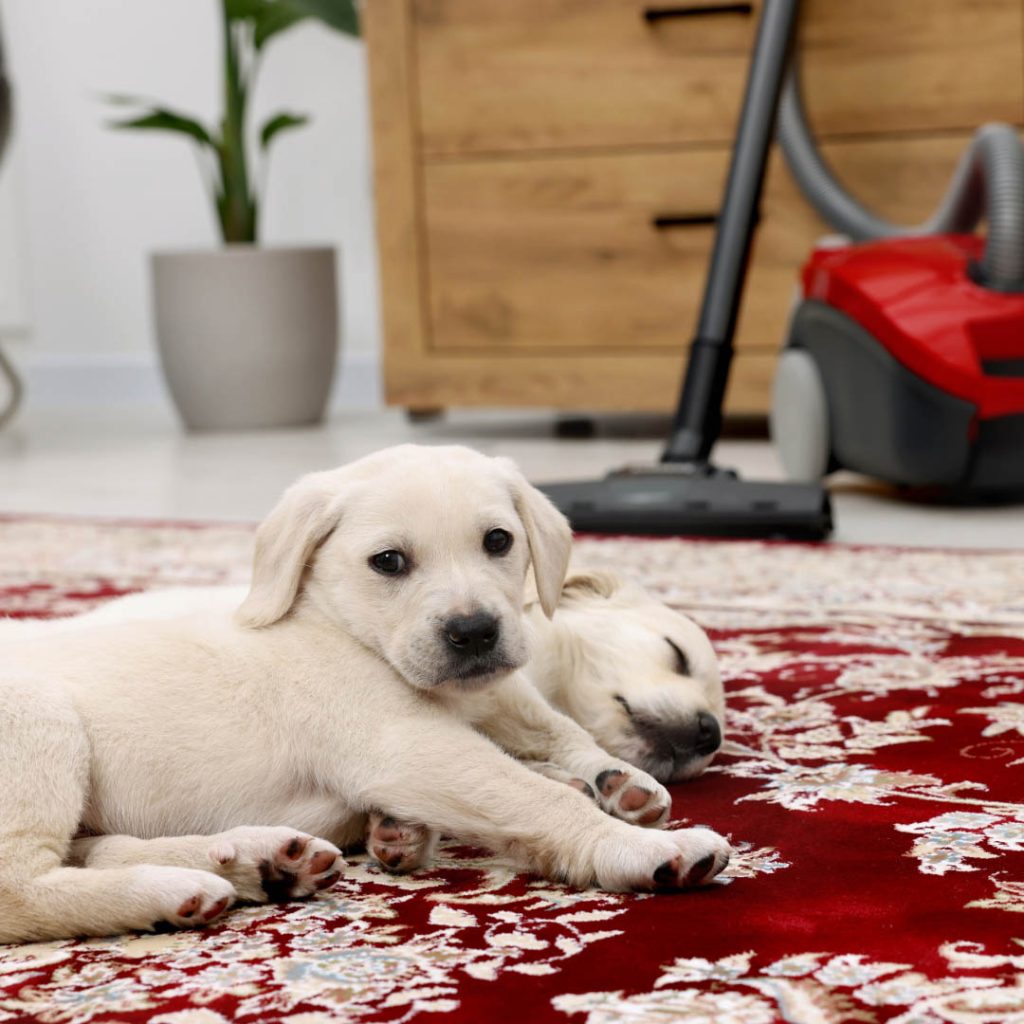
- Vacuum cleaners and washing machines
- Doorbells and knocking
- Thunder and fireworks (using recordings at a low volume)
- Loud music or TV
- Skateboards, scooters, and bikes
The Risks of Inadequate Socialisation
Neglecting proper socialisation can lead to:
- Fearfulness and anxiety in new situations.
- Aggression towards unfamiliar people or animals.
- Sensitivity to sounds can lead to phobias.
- Difficulty adapting to changes in the environment.
- Challenges during grooming or veterinary visits.
These behavioural issues often emerge during adolescence and can persist into adulthood, making early intervention essential. If you are concerned about any of your puppy’s behaviour, it is crucial to contact a professional trainer or consult with your veterinarian.
Balancing Socialisation with Vaccination Safety
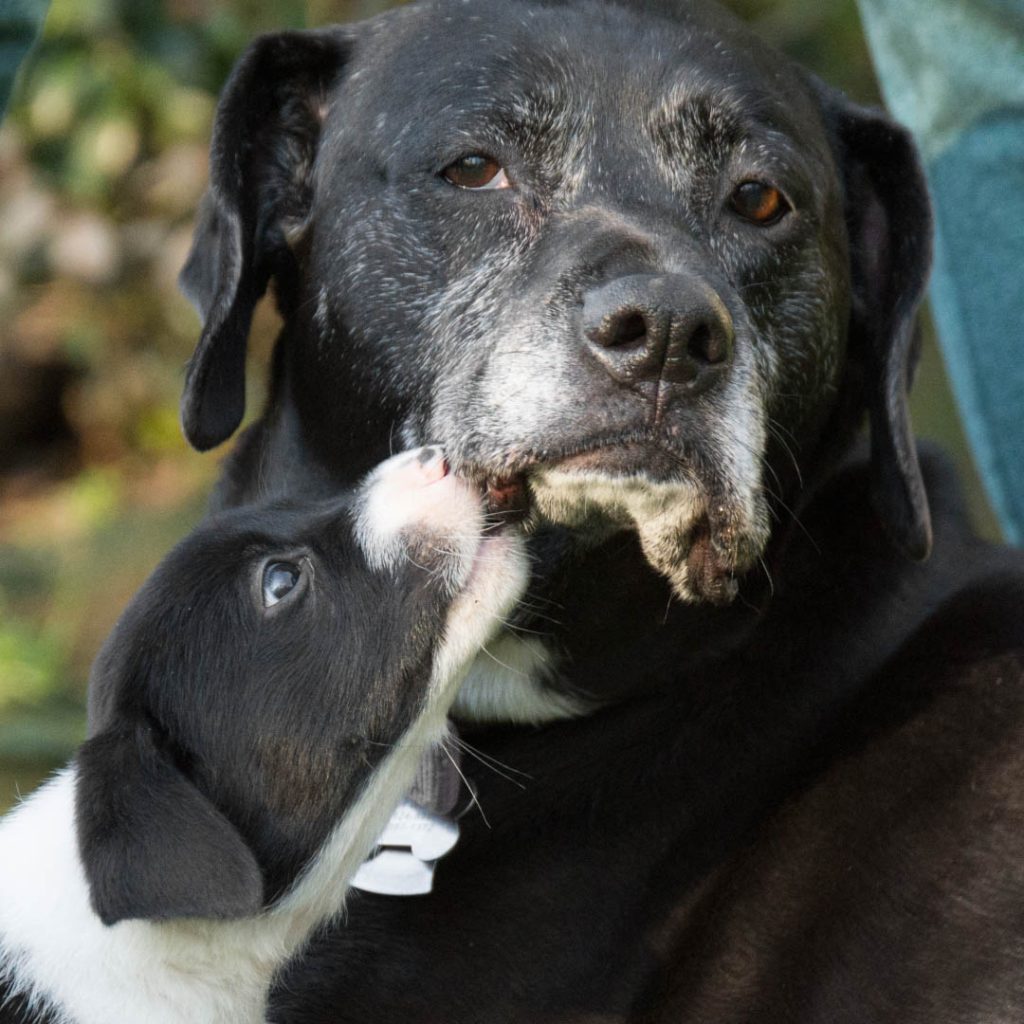
A common concern among puppy owners is the risk of disease exposure before their puppy is fully vaccinated. While it’s vital to protect your puppy’s health, safe socialisation is both possible and recommended:
- Puppy classes: Enrol in classes that require up-to-date vaccinations and maintain clean environments.
- Controlled introductions: Arrange playdates with healthy, vaccinated dogs in safe settings.
- Observation outings: Carry your puppy in your arms or a carrier to observe different environments without direct contact.
- Home experiences: Expose your puppy to household noises, various surfaces, and gentle handling. Vacuum cleaners, pots and pans dropping, children screaming and playing – any loud noise and everyday household noises.
The American Veterinary Society of Animal Behaviour (AVSAB) emphasises that the benefits of early socialisation outweigh the risks when done safely.
The Role of Puppy Preschool
Puppy preschool classes offer structured environments where puppies can:
- Interact with peers: Learning appropriate play and social cues.
- Meet new people: Building positive associations with strangers.
- Experience novel stimuli: Introducing various sounds, sights, and surfaces.
- Begin basic training: Establishing foundational commands and behaviours.
These classes are typically designed to be safe for puppies who have started their vaccination series, providing invaluable experiences during the critical socialisation period. It’s important to enrol early as these classes typically fill up very quickly.
Step-by-Step Guide to Safe Puppy Socialisation (From 8 Weeks Onward)
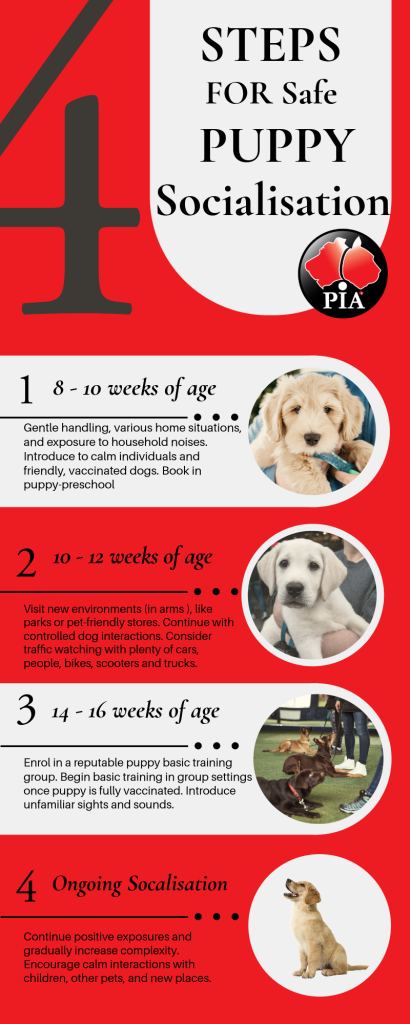
Here’s a concise guide to help you visualise and implement safe socialisation practices starting from 8 weeks of age:
- Weeks 8–10: Begin with gentle handling, various home surfaces, and exposure to household noises. Introduce to calm individuals and friendly, vaccinated dogs.
- Weeks 10–12: Visit new environments (in arms or carrier), like parks or pet-friendly stores. Continue with controlled dog interactions. Consider traffic watching with a variety of vehicles, including cars, people, bikes, scooters, and trucks.
- Weeks 14–16: Enrol in a reputable puppy basic training group. Begin basic training in group settings. Introduce unfamiliar sights and sounds.
- Ongoing: Continue positive exposures and gradually increase complexity. Encourage calm interactions with children, other pets, and new places.
Note: Always monitor your puppy’s reactions and ensure experiences are positive and not overwhelming. If your puppy gets scared, reassure them with a cuddle or distract them with a tasty treat.
By prioritising early and safe socialisation from the moment your puppy arrives home, you’re setting the foundation for a confident, adaptable, and well-behaved adult dog. Remember, the experiences your puppy has now will shape their future interactions and behaviour. Embrace this critical period with care and positivity!
Nadia Crighton is a renowned and accomplished professional in the fields of Journalism, Public Relations, and Writing, with an extensive career spanning over 25 years, 20 of which have been dedicated to promoting the health and well-being of pets.
Get the latest Pet Insider Tips & News
We offer award-winning* pet insurance policies to protect your furry friend’s health and wellbeing. Get a quote today and give your pets the care they deserve.
Archives
Categories
- Cat Care (66)
- Cats (3)
- Dog Care (130)
- Guides (29)
- Health and Nutrition (203)
- Lifestyle and Activities (222)
- Media Release (42)
- Pet Care (256)
- Rescue Dogs (1)


